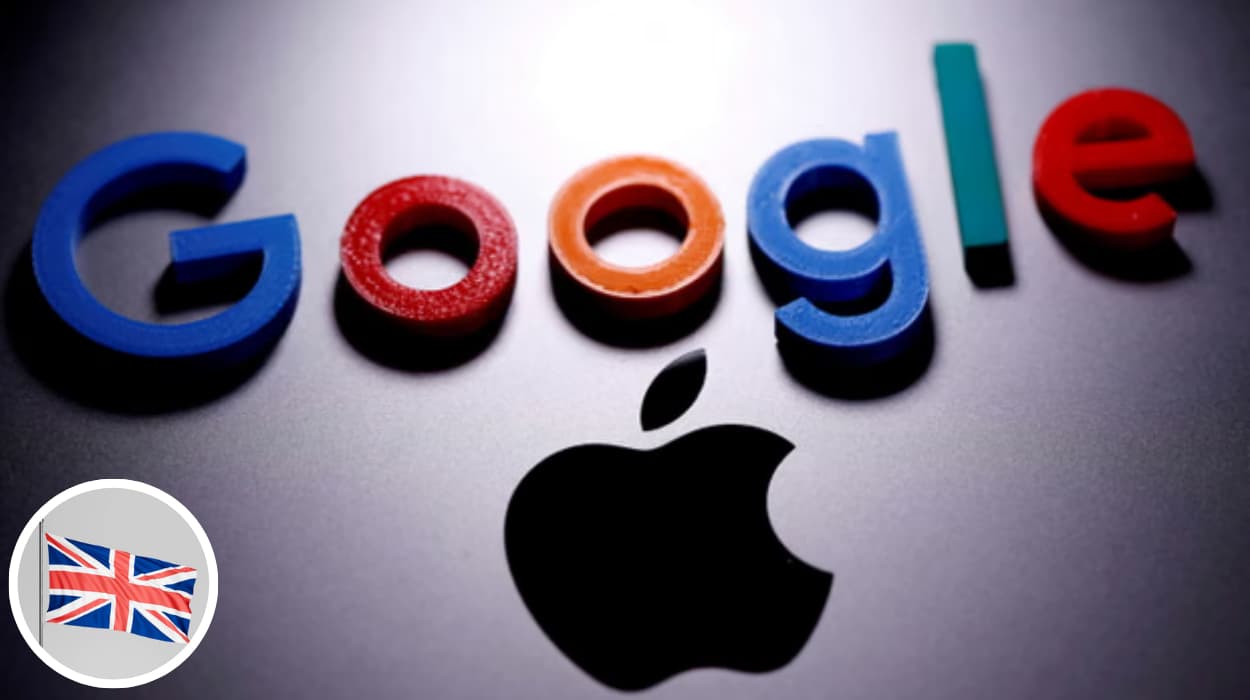Summary
- The UK’s Competition and Markets Authority (CMA) is preparing to take regulatory action against Apple and Google concerning their mobile platforms.
- The focus is on potential anti-competitive practices in the mobile app ecosystems controlled by these tech giants.
- The watchdog's scrutiny involves both platform policies and technical controls that may limit competition and developers' choices.
- This move is part of a growing global regulatory crackdown on big tech companies over their market dominance.
- Details of the specific measures and timelines for enforcement are expected to be announced soon by the CMA.
- The regulatory pressure reflects wider concerns about consumer choice, innovation, and fair competition in the digital economy.
The UK’s Competition and Markets Authority (CMA) is set to take decisive action against Apple and Google concerning their control over mobile app platforms. This move targets the companies’ dominant positions in the app marketplace and aims to address concerns about anti-competitive practices that may limit developers’ options and consumer choice. As regulatory pressure mounts globally on big tech firms, the CMA’s intervention reflects a broader effort to ensure fair competition, transparency, and innovation within the digital economy. This development could lead to significant changes in how mobile apps are distributed and monetized on billions of devices across the UK and beyond.
What Is the UK Watchdog Planning Regarding Apple and Google’s Mobile Platforms?
The UK Competition and Markets Authority (CMA) is gearing up to implement regulatory measures targeting the mobile platforms operated by Apple and Google, according to multiple media reports. This action follows an extended phase of investigation into whether the two companies' control over app stores — Apple’s App Store and Google’s Play Store — restricts fair competition and undermines developers’ freedoms.
The CMA’s planned intervention aims to address anti-competitive practices by focusing on the policies and technical barriers that Apple and Google employ in their smartphone ecosystems. This includes scrutinizing the restrictive rules about in-app payment systems and the prohibition of alternative app stores or sideloading on these platforms — issues that have prompted international regulatory attention recently.
Sources familiar with the matter indicated that the watchdog's decision comes after consultations with industry stakeholders, consumer groups, and legal experts. The enforcement could compel Apple and Google to loosen their grip on app distribution, provide developers with more transparency, and enable consumer choice, all in line with fair market principles.
Why Are Apple and Google Under Regulatory Scrutiny in the UK?
The investigation by the CMA reflects a broader global trend in examining the dominance of major technology firms in digital markets. Both Apple and Google run dominant platforms on billions of devices worldwide. Critics argue that their dual control over hardware and software ecosystems gives them leverage to impose terms that can stifle competition, inflate costs for developers, and limit user options.
The UK’s move aligns with similar regulatory activity in other economies, such as the European Union and the United States, where lawmakers and regulators have taken steps to rein in the power of big tech. Key issues under investigation include:
- Mandatory use of proprietary payment systems that charge commissions.
- Restrictions on sideloading apps or using third-party app stores.
- Non-transparent app store policies and opaque decision-making.
- Differential treatment of developers favoring first-party or affiliated apps.
The CMA’s proposed action signals an intent to create a more level playing field for app developers and safeguard consumers from potential monopolistic practices.
How Might This Action Impact Apple and Google’s Business Models?
Apple and Google have traditionally defended their app store models by citing security, privacy, and quality control reasons for their strict policies. The UK watchdog’s challenge could force structural changes to these models, potentially allowing:
- Alternative app marketplaces on iOS and Android devices.
- Use of third-party payment processing within apps.
- Enhanced transparency around app store rules and enforcement.
Such changes would represent a significant shift from the current walled-garden approach, potentially affecting billions in app store revenue, as commissions on in-app purchases constitute a large part of their earnings.
However, both companies might resist changes that threaten their integrated business strategy, which tightly couples software, hardware, and services.
What Is the International Context for the UK’s Regulatory Action?
This initiative by the UK watchdog comes amid a wave of global regulatory scrutiny of Apple and Google. For instance:
- The European Union has passed the Digital Markets Act to curb gatekeeper power of dominant platforms, including app stores.
- In the U.S., antitrust investigations and lawsuits target app store policies and dominance.
- South Korea and Japan have enacted laws pushing for openness in app ecosystems.
The UK's action is consistent with these global efforts but tailored to its domestic market and competition law framework.
What Are the Potential Responses from Apple and Google?
Historically, Apple and Google have maintained that their control protects users from fraud, malware, and privacy violations. They have occasionally made concessions, such as reducing commission rates for small developers or allowing some limited forms of alternative payment methods.
It is anticipated that both companies will engage with the CMA process, potentially negotiating outcomes or challenging regulatory demands legally if required.
This planned regulatory action by the UK’s Competition and Markets Authority represents a pivotal moment in global efforts to regulate big tech platforms. By focusing on Apple and Google’s mobile ecosystems, the CMA aims to ensure a competitive app market that fosters innovation, consumer choice, and fairness.
Continued coverage will provide updates once the CMA officially announces the measures and enforcement timelines, alongside Apple and Google’s formal responses.

